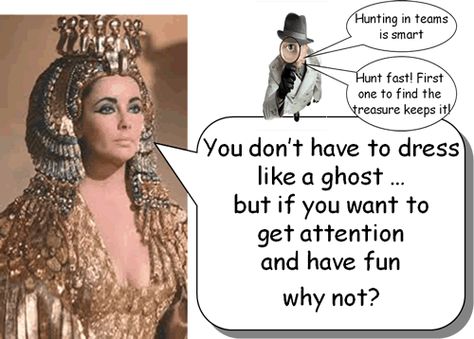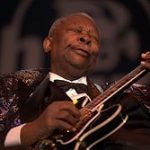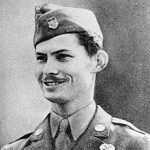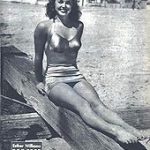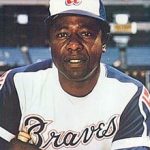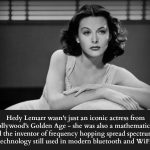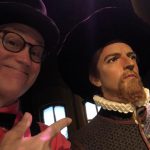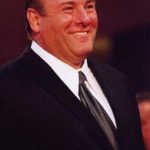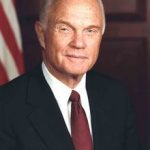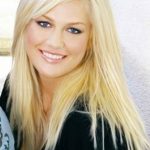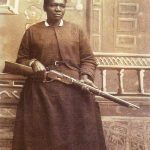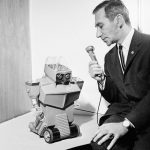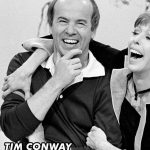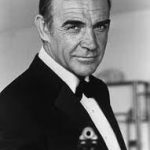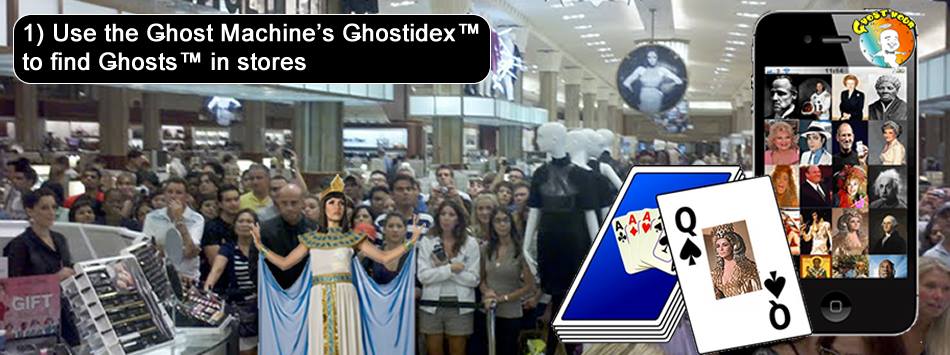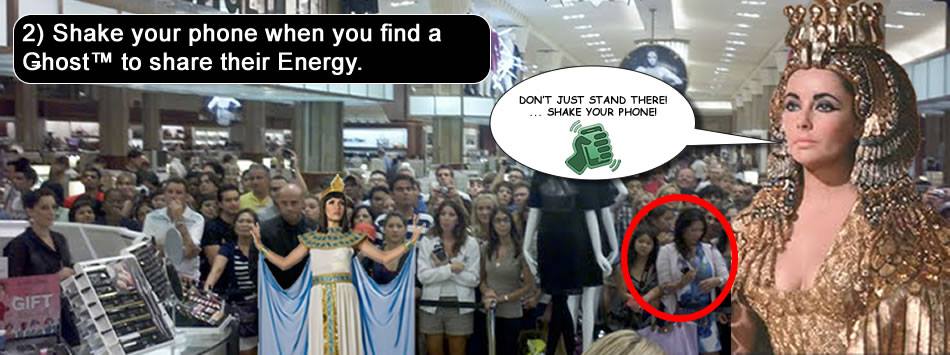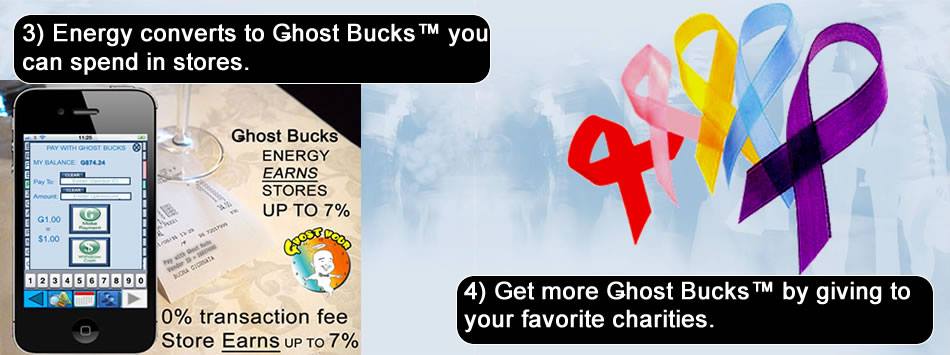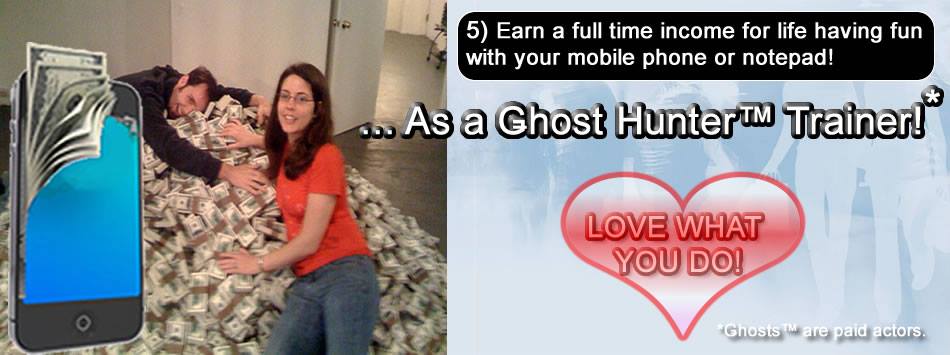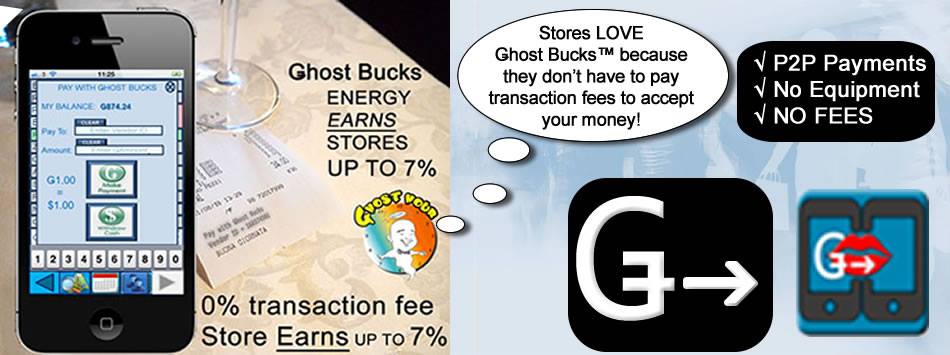The App
Combine Bitcoin, Google, Facebook, the Better Business Bureau, Groupon, Tomb Raider, Ancestry.com, SnapChat, FourSquare, MySpace, Venmo, Ghostbusters, Yelp and Mail Chimp with Pokemon Go to get something in the vicinity of the Ǥhost Machine app as it was first conceived. For Americans, this may sound like a crazy, way too complicated idea, but if you ask the Chinese, you'll realize that combining a search engine with social media and games and bank accounts and messaging is convenient and extremely popular.
China has banned both Google and Facebook and served its population of over 1 billion users with social media platforms far larger than ours. Check out Dragon Social for an overview of the top ten Chinese apps. The Ǥhost Machine was first conceived as a Super App with the versatility of WeChat, which became the #1 Chinese app.
The thing about a Super App is that it does so much, you don't really know where to begin to describe it. Conveniently, I've already described a lot of the features of the Ǥhost Machine app in my previous blogs. Before reading this, read The Concept. Read the entire front page from left to right from top to bottom.
An app typically has a core function. For WeChat, that is messaging. The core function of the Ǥhost Machine is search. However, searching with a mobile phone is ... well ... mobile. Most people do research on laptops. If they have a quick question, they might ask Siri. Fact check something? They can get that with their phone. They Google it.
On the Ǥhost Machine app, searching is hunting. It's a ǥhost hunting app. And as before, it's still a social network for helpful ǥhosts who get rewarded for improving its search engine. And the members physically meet up.
The idea came before Pokemon Go, so there was little way to describe the interface. It was to utilize a ǤPS (Ǥhost Positioning System). Enter the time you are available to go ǥhost hunting on your calendar and ǥhosts appear on the ǤPS accordingly, with the ǥhost hours displayed on their tummies.
Stores, pubs and anyone wishing to draw a crowd at any particular time, could be a Ǥhost Host. They'd pay to have ǥhost hunters come in to have fun earning Ǥhost Bucks. It was a game that paid ǥhostsurfers to search or hunt at their convenience. It got them outside, meeting up. It was the anti-social media social media.
Tap and hold on a Ǥhost's belly to get details on the venue. Invite friends through the ǤM (Ǥhost Messenger) with notes. As each one confirms, your group has instant reservations. The haunts can plan that way as the Ǥhost Hosts for hosts of ghosts.
Ever use FourSquare? Share photos of the venues and rate them. Pictures of you with your friends, with Snapchat like filters full of ǥhosts added, could be featured on the app's main feed, with your permission. Share there and to all your other social media with a single tap. The Ǥhost Machine was designed to become one of the only apps you would ever need to use.

INTERACTIVITY TURNS WEB SITES INTO APPS
I could see it in my mind's eye with all the detail I had when I envisioned surfing on a tubular wave or doing a fancy trick from a diving board. But the general philosophy in the entrepreneurial startup ecosystem was simplicity. Simple was cheaper to build. Simple was easier to explain in an elevator pitch to an investor. As true as this was, it was also true that simpler wasn't always better.
Here's a thought exercise. Imagine describing Facebook in ten seconds or less to an investor that you've just met in an elevator. Pretend there was no such thing as Facebook to compare your idea to. Try it. I mean really. Try it. What will convince that investor to meet with you the next day to hear more in a room full of business partners and their legal team, to whom you will also explain this concept, expecting them to understand and agree?
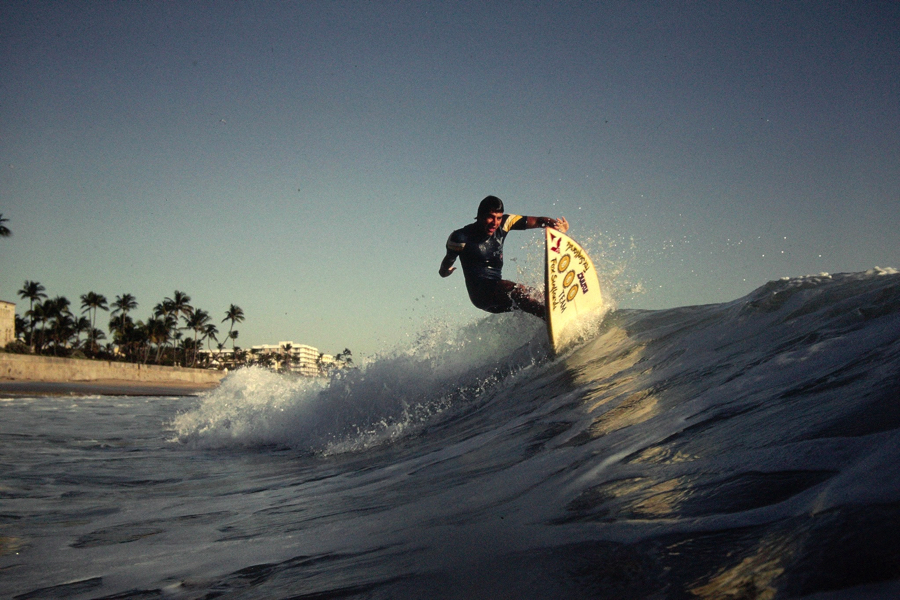
CARVIN'S FRIEND, ALEX BACH, ENJOYING A WAVE
AT THE JUNGLE ROAD JETTY - PALM BEACH
The Ghost Machine was an even more complicated concept as a mobile app than it was as a website. I thought about simplifying it but I reasoned that certain geeks might love its hidden features as I slowly released them. They could become certified Ǥhost Hunter trainers, who would discover and share them. I could reward them as my beta testers.
The key to making it work would be to use the same veiling system I'd originally planned for privacy. Once a member accomplished one thing, I would reward them with a new ability and a new way to earn Ǥhost Bucks. Eventually, I would have them improving the search engine for me. I could introduce the concept simply, then reveal its actual power, one layer at a time.
I was inspired! Like a surfer, imagining the perfect ride, contemplating my position between sets, I thought this through at length. What would be required when the next set of waves came in? What were the odds that I could make this happen? Very poor, of course. Well, duh. But visions don't always start with every answer. Sometimes, they start as challenges.
I had anticipated the coming of a wireless digital age where mobile phones did everything computers could do and more. But that didn't necessarily mean I could paddle to the right spot and pick up the momentum I would need to catch any of its incoming waves.
Confronted with my lack of the means necessary to pull this off, I considered not trying at all. But that's not what surfers do. If one wave passes you by, you might catch another. You figure things out. You start by getting out there. You work with your instincts. Another set of waves comes in if you miss the first. How was I positioned? Quite poorly actually.
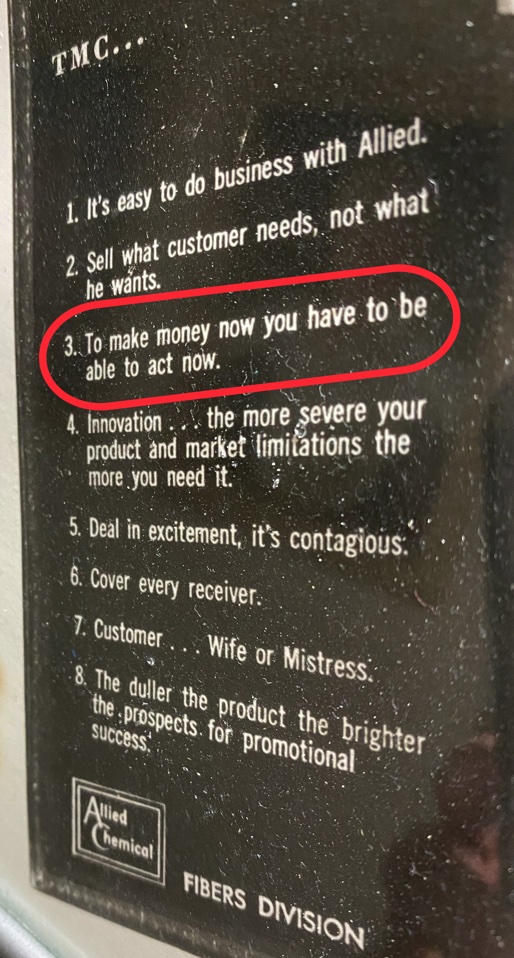
CHARLEY'S TOTAL MARKETING CONCEPT & TMC POINT 3
I was powerless. If any of this was to be, it would be God's doing, in God's timing. For now, it would be enough for me to spell out what I had seen as I looked at the current possibilities, sensing the currents.
It was like a choppy day. There wasn't going to be any perfect wave here and I knew it. Still, a surfer can always get lucky. We see what comes in. Maybe there's a ride to be had. Maybe there isn't, especially on the East Coast.
So where was I? I lacked the power of influence I would need. I had no email list. I had no existing base of users. I had no money. And there was no such thing as an elevator pitch for the Ghost Machine. Pathetic.
It was way too much to get started and I knew it. Still, I had a choice. Either get in the game or get out. And Total Marketing was not optional. It was my calling. The only question was when and how?
With the original Ǥhostsurfers.com site scrubbed from the web I had no assets. I needed tons of responsive users on my opt-in mailing lists. I had nothing.
I was in no negotiating position either with investors or any potential Ǥhost Hosts. I estimated that a prototype would cost $250,000 to build but to get that amount of funding I would need sales commitments in advance. With Groupon and a hundred other copy cats telling restaurant owners and managers all about their latest apps, while mine wasn't even developed yet, good luck with that!
I thought long and hard about all I would need to stimulate a user base in advance. If I could do that, then I could get active ǥhost hunters and ǥhost hunter trainers in at least one city. Of course, I would have to literally pay that out of my own pocket, or that of my investors, if I could find any.
Anything we paid members in advance, would count as part of the 50% of revenues that I ultimately planned to pay the members. The largest start up cost was going to be that reward money. At least, I could work that into the Ǥhost Bucks Formula.
I figured I could pay for employment ads for ǥhost hunter trainers. That could be an interesting way to get things started. I would have to enlist a sales force to hit up restaurants, night clubs and stores.
Someone suggested I could pay a base salary plus commissions and churn new substandard employees. I rejected that idea on ethical grounds. That would be the very type of unethical way of doing business I wanted to put an end to in the first place. The bottom line is that I was ready to envision the Ǥhost Machine, but I wasn't ready to act. As Charley put it, "to make money now you have to be able to act now." I wasn't.
Regrouping
I shouldn't over-state how powerless I was. In the first decade of 2000, I worked to regroup and had enjoyed some amount of success in my struggle to regain my relevance. There were some interesting waves around at that choppy time of my life. For one thing, my flow thru software was being resold. I don't know who had it or or how they obtained it. It wasn't from me. But I bought it from them for under $300 and installed it. It worked great.
With that software, I could promote multiple business opportunities simultaneously and my affiliate links would flow thru as I gave duplicate sites away for free. The problem with that, as had always been the case, was that there were so few ethical business opportunities available - especially multi-level opportunities.
There were always marketing tool boxes. Those were still somewhat useful. Surf4Pay had lost its initial oomf by that time. All Advantage had long since gone out of business but Desktop Dollars and a few other such programs were still up and running. There was one new category that intrigued me - companies that were now using a network marketing model to sell real estate related products. Keller Williams had been the most prominent among them. I considered getting a real estate license when I saw this but instead, chose to capitalize on my strength as an innovator.
At that time, a builder, (Custom Super Homes), offered a multi-tiered affiliate program, as did a lender (National Lending Corp.) and its sister real estate company (Homeland Realty). I was also approached by a Church pastor from Missouri who I had met online. He wanted to sell an eBook on creative real estate investing using my software.
Putting things together, I started to create an advertising directory for real estate sold by owner, similar to For Sale By Owner at 123DreamHome.com. I also started the Creative Realty Network, which I marketed through RealEstateMLM.biz. I built up a downline of about 6,000 from scratch that way, while driving for Yellow Cab.
I made some money originating mortgages for NLC. That was about it. The other programs didn't have their products ready, not even my own. The pastor's eBook was just not worth what he wanted for it. I lacked the experience I needed in creative real estate investing to write my own but did consider that path for a time. It was a hard period in my life. The real estate bubble had popped. It was difficult to qualify anyone for a mortgage.
Those were crazy-challenging times. It was when Lisa had her stroke. We had sold our five bedroom home and were living in one small apartment after another. Those were the bed bug years too. And the computers - they crashed continually. I kept buying new ones so I could regroup my business, finally make something work.
If Anatoly had only known what trouble he'd caused. I don't think the Russians ever knew. I suspected they may have been responsible for some of my personal computer viruses and other data loss. Why do people do that? Some people create viruses to destroy anyone they can. I'm not sure what their motive is. Some of them sell sham malware protection software that creates more viruses and suckers people into paying for it.
I was certainly victimized by the Internet enough. I don't know about fixing it. My wounds contributed to my sense that solutions were needed. We needed to fix this. The public needed protection from this sort of thing. It was a Goliath sized problem - everything wrong conceivable. I saved my old computers and my many phases of back ups, dragging them from apartment to apartment as my systems crashed. I was going to put all that space-consuming dead weight onto an external hard drive someday - maybe organize it if I could find the time. At least half of it was ultimately irretrievable.
So, that all happened in the decade-long gap from the Ǥhost Machine website to a proposal for the Ǥhost Machine app. Despite my best efforts to regroup, I could do little more than make screen shots and schematics of the app as I attempted to gather a team that could execute a workable plan.
I called the new version of the Ǥhost Machine "Ǥhost Hour," with the hope that the hour for the Ǥhost Machine had finally come, or at least believing that it eventually would.
And of course, there was double meaning. Ǥhost hours were the hours hosts could schedule their ǥhosts. My plan was to pay half of the revenues from ǥhost hours to our members, using the Ǥhost Bucks formula, of course!
The waves were choppy and rough in those days. I'd been working as a taxi cab driver to pay bills and after my mother died, I had enough money to start on an app prototype. Whether I was ready or not, the wireless revolution was upon us. I'd have to think outside of the box a bit and use what few connections I gathered as I'd regrouped, driving a cab and selling mortgages and other odd jobs.
I had done some web work for one of my taxi clients, John YQ during those years. John had a patent pending shopping cart washing machine invention and needed help with marketing to supermarket executives. It was a great contraption.
I was able to create some web property at SuperMarketGreenNews.com that found him the executives he was looking for. Lisa and I did a great deal of work running a news web site, conducting interviews on environmental technology at the time. What didn't we do?
Oh, if those taxi cab seats could talk! There are so many stories to tell. I was working with John when his partners stole his company from him and by 2013 I found myself helping him put together his legal case against the notorious mobster, Scott Rothstein and some of his minions. It was then that John promised me that if I would help him for a time to get his business up and running successfully again, he would do the same for me.
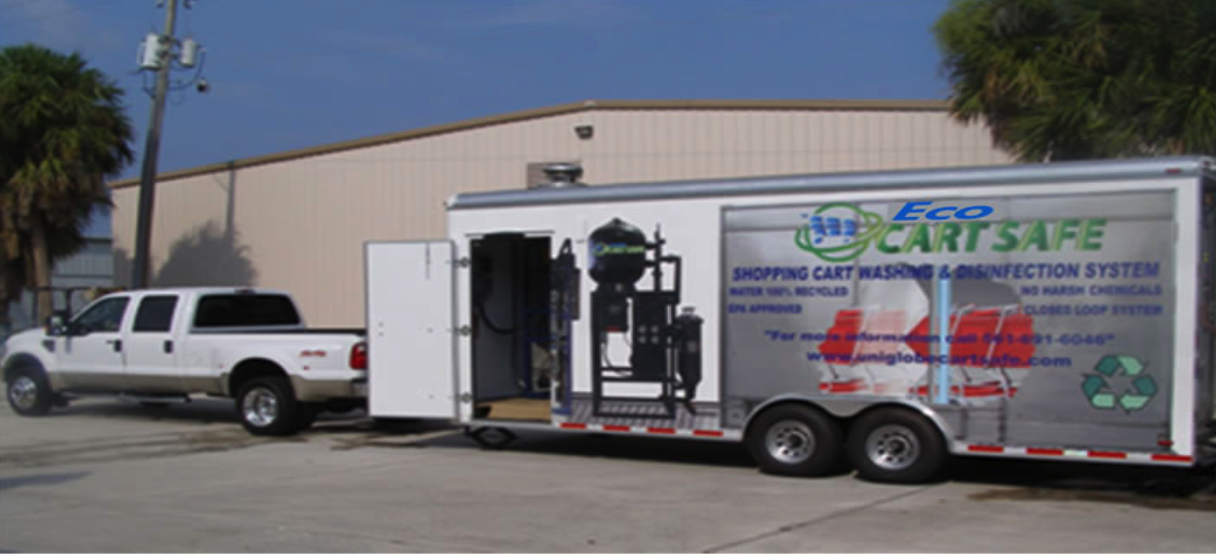
MOBILE ECO-FRIENDLY SHOPPING CART SANITIZATION
If only others would contribute to my vision the way I helped with theirs, I sometimes thought. I would never have lacked the resources I needed with the Ghost Machine. It didn't work out that way, but it would have been fair. YQ and I had. a longstanding agreement.
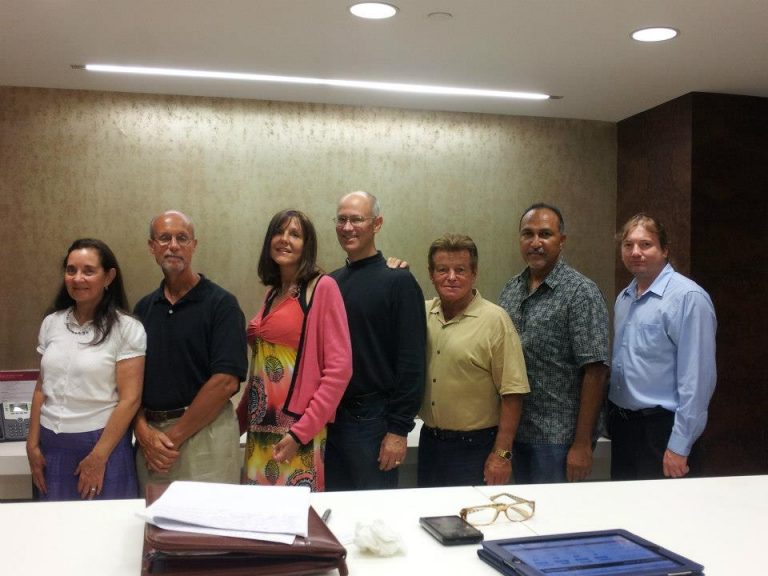
GEORGIE, MARTY, LISA AND JAMES (PLAYING STEVE JOBS), AND JOHN, CESAR AND MARK AT THE GHOST HOUR OFFICE
Whatever I put in for John, he would then do the same back for me and then some, he said repeatedly. In short, he promised he would invest in the Ǥhost Machine and eventually we worked out some written agreements. So, instead of sowing money into the Ǥhost Machine, I actually helped John along. I agreed to his proposal, invested in his companies, and became his right hand man for over a year.
Marty Fisher was an exception to that rule of giving. He had been a founding CTO at AOL Technologies and was now doing freelance consulting. He helped both me and John out. It was through Marty's coaching that I improved my wireframe and story board skills. I paid Cesar to do some third party development that I could keep in check with Marty's help. Mark Laymon ran co-working spaces for Palm Beach County under more than one name and remains a trusted friend and advisor to this day, as well.
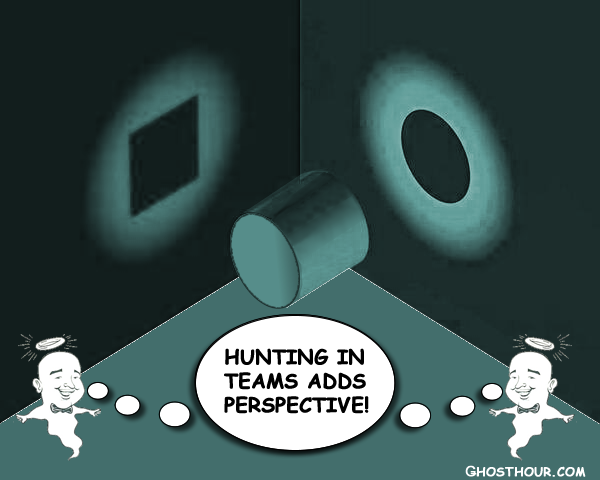
CARVIN'S TEAM WAS HELPFUL BUT HE BACKED OUT
Unfortunately, John's project was delayed for various reasons. He had some good offers he should have taken, in my opinion, but he was leery of people stealing his company again. I could hardly blame him for that. I won't go into his story. Suffice it to say here that without the $2 million that my seed start up plan called for, I lacked the leverage I would need to get started. I also wasn't being paid the salary he'd agreed to. So, I backed out of the Ghost Hour plan. That just wasn't the hour for it. If it was a God thing, God would work out the timing.
It would have to wait and it was just as well. My sister, Corinne, was very sick during that period, living in a nursing home on a feeding tube. Her husband had abandoned her and my brothers had moved her to a facility in Talahassee. We had often made the four hour trip to Tampa to visit, but Tallahassee was eight hours away. It is one thing to remember the dead. It is another to do the right thing while people are still living. My mother had now passed and Lisa was no longer obligated by work, so without a business plan that would work, it was appropriate to bring our time in the Palm Beaches to a close. We moved back to Tallahassee a few blocks from my sister's nursing home.
As you are no doubt aware, moving is often a complex decision. And deciding whether to go into or stay out of a business is like a cross current in it all. There was one other reason I stopped the Ǥhost Hour clock. I certainly could have managed it from Tallahasee, but I knew it was critical that I remain a majority shareholder.
No other investor besides YQ owed me anything. If I didn't put it on hold entirely, my vision for an ethical company - the reason our ǥhosts had halos - would have failed. Any other investor would have pushed me to the side to run the show their own way. I wasn't going to lose sight of what was driving me to do this. It was Charley.
Typically, a founder will retain only 5-15% of equity in a company at best before all is said and done. I wasn't greedy. I had to guard a vision and would need a majority share. Of course, it is not impossible to retain majority ownership if you position yourself through swaps like the arrangement I had with John. My family thought I was foolish to believe YQ would ever make good on his promises, but so be it. I suppose I was.
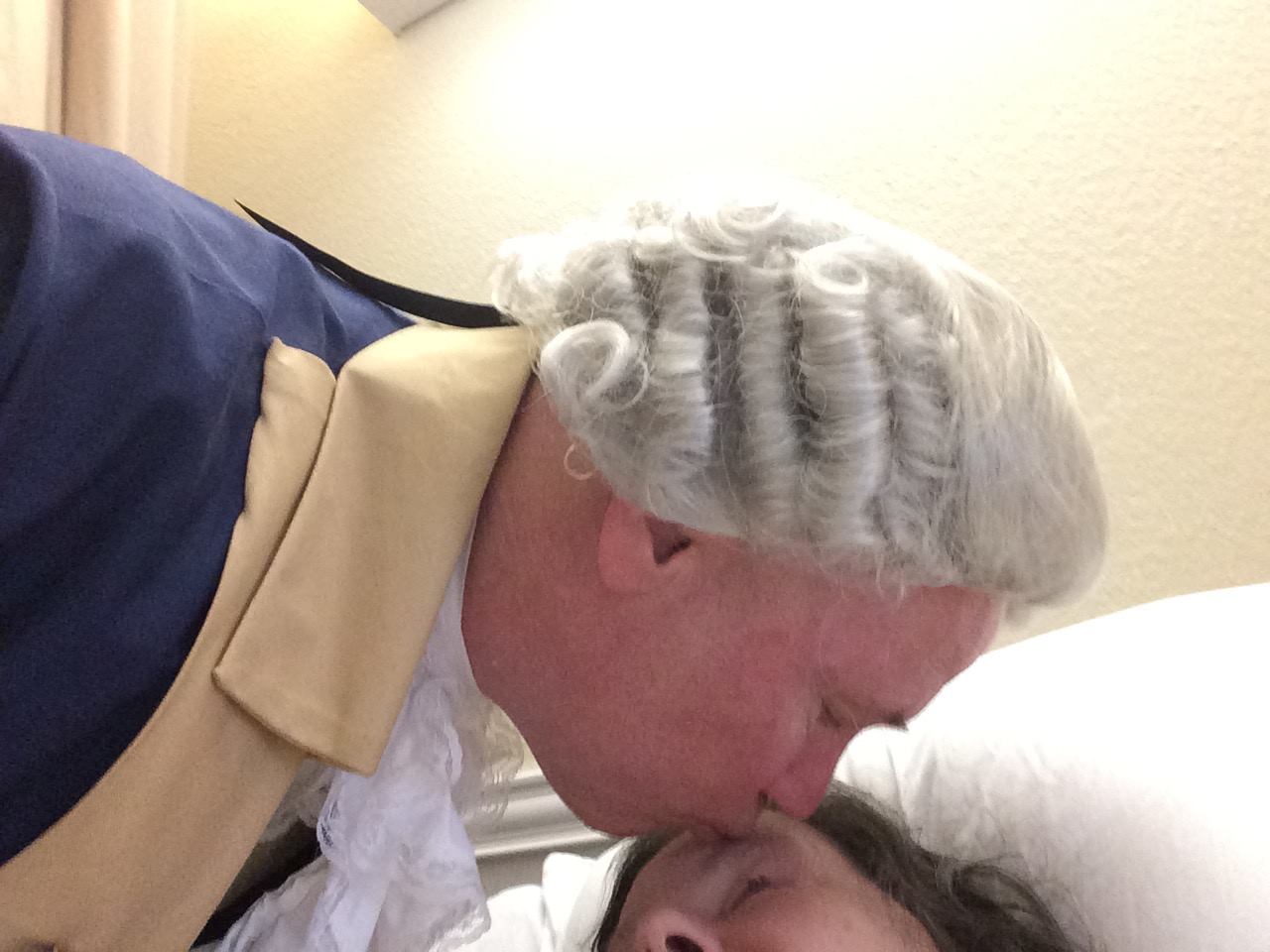
HONORING THE DEAD IS IMPORTANT BUT WE PRIORITIZE THE LIVING. IT'S ALL ABOUT LIFE. JAMES AND CORINNE CARVIN
He was an odd character and his own lack of funding left him with many creditors. He was living on promises he would never be able to keep.
But I believed John would do the right thing if he ever succeeded. And I knew he needed me to succeed. The only way for any of us to get paid what we were owed would be to help him. I had seen his generosity when he was enjoying better times. Plus, he was quite close to getting his business back in operation.
Even so, there came a point when I had helped him all that I could and I couldn't wait any longer. Moving back to Tallahassee, we cut ties for a few years as I got back on my feet. Corinne passed, as did my brother Chris, who was also living nearby during that time, as well.
For his part, John eventually managed to find a manufacturer without my help. George Podell, he said, was willing to build his machines for him in advance. So, he called me up to help him rebuild his web site and any other involvement I wanted and had a bunch of people he started introducing me to.
He was gushing with joy about it and promising again he would pay me back for all I had done for him. I was able to find his old files and restore his site from a distance. But it was all for naught. He called me up asking where to send a check and on that very call started telling me he was having chest pains. I urged him to call 911. I'm sure he was uninsured and didn't do it. Then that very night, just after sending him the invoice he'd asked for, I got a call from his girlfriend that he had died of a heart attack. Rest in peace, John.
The Ǥhostidex
So, now you know why the app was not deployed. Or hasn't been yet anyway. I can only say so much in one blog post, so I've left little room for showing you what would have made the Ǥhost Machine app incredibly fun and useful. My goal was a maximally awesome user experience. I won't show you the screen shots without your signature on a Non Disclosure Agreement. But here's a summary.
What I referred to as "the world wide underground" and "the economy of the catacombs" was for everyone, not just an elite group of shareholders. It was a sort of crypto-currency. But it was easier to obtain than Bitcoin. You'd mine for Ghost Bucks by ǥhost hunting.
In those days, I positioned myself for the take off by completing the screen shots, wireframes, storyboard and pitch deck. The most important deck of all, of course, was the Ǥhostidex.
Just as there are decks of Pokemon cards that can be bought for a high price at book stores and on the Internet, we had Ǥhosticons.
As with Pokemon and Digimon and Yugio cards, each Ǥhosticon card would say something about the figure and you could play games with them or trade them with friends. The difference is that Ǥhosticon cards represented real people - people who had died.
We put a lot of thought into who we should feature. Some of the icon candidates are pictured here on the left. Do you know who they were? We decided to educate the public a bit by mixing in lesser known figures with ones that would be easy to recognize.
The word "icon" lent itself to fame. In churches it indicated sainthood. Our ǥhosts had halos for a reason but I didn't want it to seem churchy or preachy. I preferred the quirky geeky unserious feel of Ghostbusters and Scooby Doo for the Ǥhost Machine as a whole. I thought I'd give precedence to unsung heroes. I would try to balance out gender, color and such, so long as it was inspiring. That was the goal.
We decided to make the ǥhosts blend in. You would look through the screen like you were looking through your phone in camera mode. With the app on, you would see ǥhosts if there were any in the room.
The member might have to solve mysteries in order to find some of the more valuable ones. Ǥhost Hosts had the option to offer our version of Groupon, the Cloupon. If a hunter saw what they thought was a ǥhost from the Ǥhostidex, they would shake their phone to start capturing its energy.
I thought we might also have some fun with celebrity impersonators sometimes randomly showing up at venues, maybe getting some news press that way.
A little PR wouldn't hurt. We pictured Michael Jackson showing up with a giant check to hand some random ǥhost hunter at a local pub for a photo opportunity. We'd put things like that in our own news feed, leaving members with the idea that they too could have received that giant check. In fact, Ed McMahon himself might just have been one such ǥhost to be found in that Ǥhostidex.
Finding ǥhosts could mean big money. A certain portion was set aside through the Ghost Bucks formula to make a fair distribution of revenues feasible.
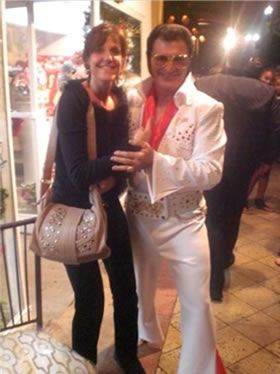
THERE'S NOTHING NICER THAN A GHOST SHOWING UP WITH A BIG FAT CHECK AND A PHOTO OPPORTUNITY FOR AN APPORT REPORT
Then there was the Halo Factor. If you hunted for your favorite charity, you could contribute your Ghost Bucks to it. When that happened, your Halo Factor would go up. And that would carry over the following month to increase the value of your energy and radiance.
Your energy and radiance accumulated with your activities. Then factoring in your Halo Factor increased your shares.You could meet friends and hunt for ghosts to raise funds for any charities you designated.
There were many ways to earn Ǥhost Bucks. If you didn't want to go out, you could hunt through the underground network of caves built by the monks that connected every grave site in the world through its virtual ǤPS. There were ǥhosts to be found both above ground and below.
Whether you were a beginner or a more advanced user or a ghost hunter trainer, there was gold to be earned on the Internet with the Ǥhost Machine. Ǥhost Bucks, actually. The monthly pay out could be cashed at any participating haunt. And that's how it would become an underground economy with its own currency. The Ghost Hosts were required to accept Ghost Bucks for their products and services.

THE Ǥ WAS THE GHOST BUCKS CURRENCY SYMBOL
Ǥhost Bucks were a very convenient currency. Once they were credited to a member's account, the money could be sent to any other member or haunt. Ghost Hosts could charge a fee of their choosing for cash outs. The Ǥhost Buck was backed by the value of customers per hour and according to the formula, were never to be be distributed faster than they could be reserved. By backing the Ǥhost Buck up with traditional currencies, I expected it to retain a relatively high value. It was a reward system that generated real money.
The Ǥhost Bank
Any Ǥhost Bucks earned would go straight to your Ǥhost Bank. Stores had no transaction fees for accepting Ghost Bucks. In fact, they could earn up to 7% by accepting them as payment through the energy that they earned as Ǥhost Hosts. It cost us nothing to shift money from one account to another, so why should we charge them?
The company would make good profit despite all the revenue sharing because the stores would pay to be Ghost Hosts in the first place and we would only share half of that with the members. We would reserve our half as a back up and make distribution strictly out of our net profits. Thus the Ghost Buck was doubly backed, first by reserves and second by the value of ǥhostsurfers in stores during pre-specified hours. It was as good as gold.
As a result the Ghost Buck could be backed up. It was convenient too. We didn't have to pay tellers. Sure, we'd have a designated budget for customer service, but any cash outs or deposits were automated. A good system design would be intuitive, allowing the store to know exactly how to order without human assistance.
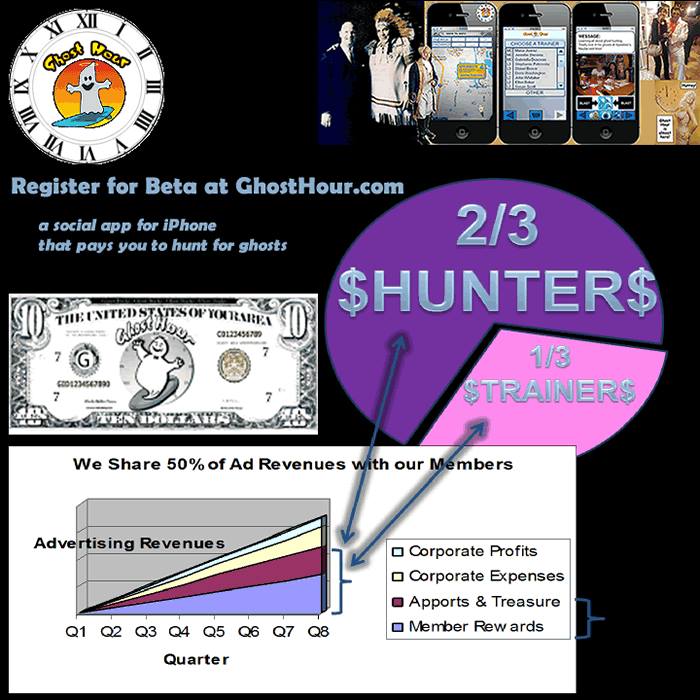
WE FIGURED THE COST OF A WORKING SUPER APP PROTOTYPE WAS $250,000 - $500,000.
To make all this work, we were going to have to introduce the app in one city at a time. We would need a significant amount of cash on hand and in reserve as a start up expense financed as a loan to the formula. We planned to offer pioneer level pricing to the first sponsors so we could get the ball rolling. If we could gather enough written commitments from the stores, we might get some investors to agree. But none of them wanted to share as much as I did with the members. Our corporate profits were as narrow as a bank's.
Precisely. A Ǥhost Bank.
Still their projected return on investment was very high. And there was only one way to get an underground economy jump started. Make sure everyone was making enough money to actually use the app.
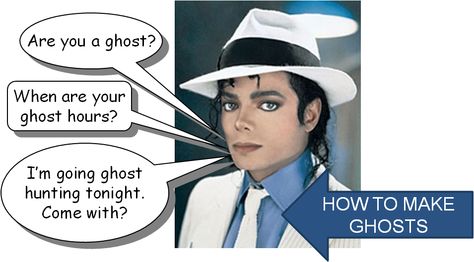
ǤHOST TALK
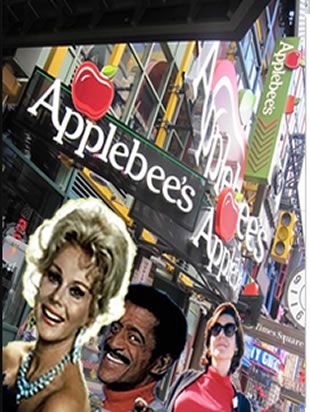
YOU'LL NEVER GUESS WHO'S HERE TODAY ...
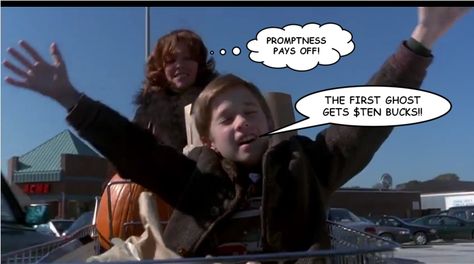
PROPOSING GHOST HOUR PROMOTIONS WAS FUN WORK!
There was going to be a significant cost in creating a big tech company that outshined all the rest. The development cost was just a fraction of the total. I was asking for $2 million and preferably $10 million for a more aggressive start. I know that's sounds like a lot of money but for an endeavor of that magnitude, these numbers are quite low. Think about it. Once the ǥhosts were part of the machine, they weren't going to leave it.

JUST IMAGINE
Their money would be in it. They couldn't. Facebook keeps active users because it has so many people they can find their old friends, interact and upload their photographs. After awhile, many Facebook users lose interest in contacting old friends but once their own photos are shared, they don't want to lose those. This is true of Instagram, as well. That's why Facebook bought Instagram. Facebook doesn't keep their money though. The Ghost Machine would have people, their photos and their money.
The Ghost Machine would have all that Facebook has plus an even greater reason for users to remain loyal members. Presently, they have a monopoly on social media in most countries, but Facebook's user base is subject to a disappearance act. That's why a successful Ghost Machine might get a sweet offer from Facebook, the way Instagram did.
The subject came up with my investor prospects many times. I told them I would not be interested in selling. The minute Facebook owned Ghostsurfers they would start syphoning the user's income into their shareholders' pockets and destroy the underground economy.
It was an ethical problem. The global community using your web site should get what they bargain for. If you lead them to believe they will be able to communicate with their friends, you can't suppress their posts in feeds. The users join up thinking they'll be all connected as they make hundreds of friends. Then they send out status updates that get almost no likes or comments. It's like they are ghosts.
It hurts being ghosted. Few people know the pain of that more than I do. Facebook was bad. Google had scrubbed my sites almost entirely. By 2020, I could literally look up "ghostsurfers" on Google and not find ghostsurfers.com. Another company with a similar name was dominating the front ten pages of the results - a VPN provider.
So, I tried work-arounds. With little social traction, I spent a significant amount of time trying to make friends with successful web publishers, social influencers and content syndicators to little avail. Part of being a ghost is them not having time to read your stuff.
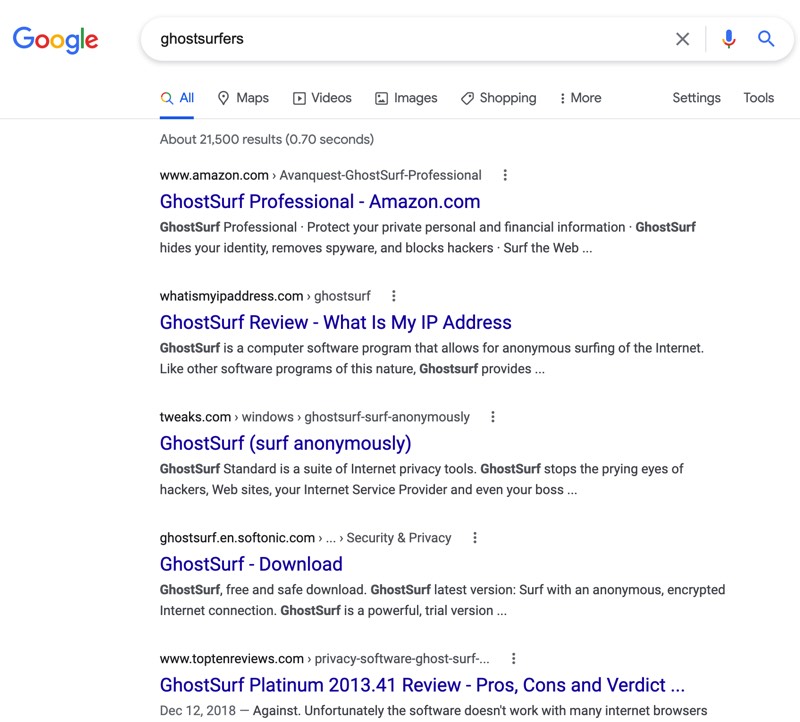
GHOSTSURFERS HAD TOP SPOTS BEFORE IT WAS SCRUBBED
Other methods were necessary. I took over as director of South Florida Crowdfunding for a considerable time, helping people with their business plans and crowd funding efforts at meet ups. It was volunteer work that I thought might help me with some cofounder speed dating.
Mr. or Ms. Right didn't materialize but it sure felt good about what we were doing for other entrepreneurs. I still believe that the best way to put together a team is to help others meet their own goals. They were useful meetups for everyone.
I am currently taking courses in Integrated Studies and Organizational Leadership at ASU through a scholarship program offered by Uber. My goal is to work with other students to start up several news web sites I will create out of a tech guild incubator.
The guild will encourage members to contribute to one another's projects. It's the only way to make start ups affordable.
I also have some other projects I've been working on that won't require my controlling interest. As I develop them and then sell my shares as funding rounds allow, I'll ask that I can retain rights to some of the advertising space on them as a founding sponsor. By doing this, any new projects I do after that will be much easier to get off the ground.

WATCH
My CounterChecker App invention is an example of something that might reposition me this way. It seems to be the most imminent. I also have several other news sites listed at JamesCarvin.com that might be developed by the guild after I get the CounterChecker off the ground.
I would make similar arrangements with most. of those projects - build them with the help of the guild, sell most of my shares, retain the rights to a portion of the ad space, and move on to my next project once it's smoothly running without my constant help.
So, here's the million dollar question: will the Ghost Machine ever rematerialize?
Time will tell ...
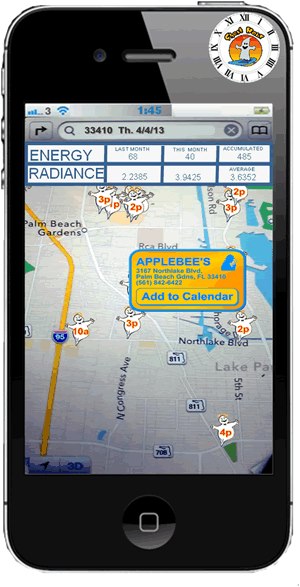
TAP ON A TUMMY TO GET INFO ON A ǤHOST HOUR, ADD TO CALENDAR AND INVITE FRIENDS
